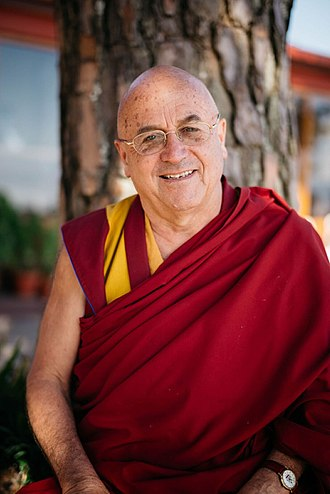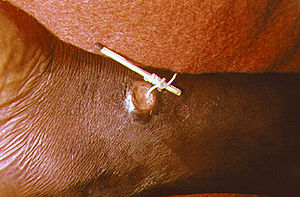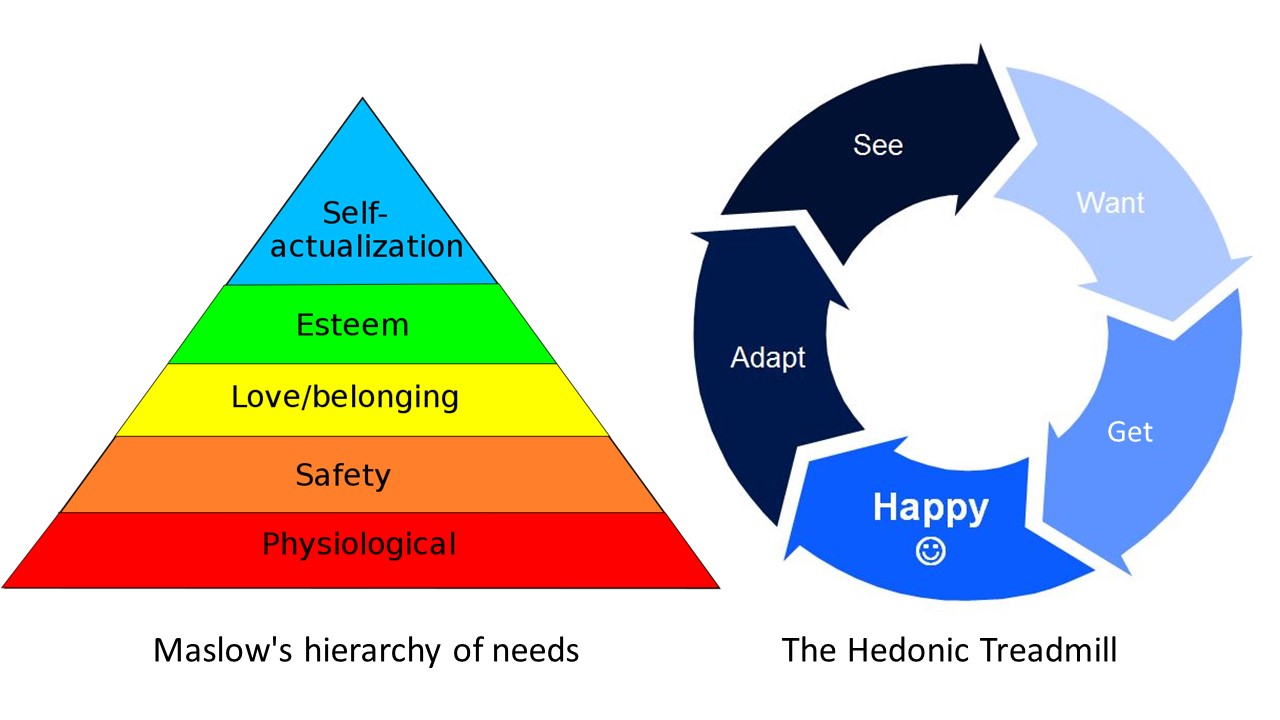Imagine for a moment that you’re confident you’ll continue to live healthily for thousands of years, with the mind and body of a 25-year-old. Now imagine that in addition to your exceptionally long and healthy life, you’ll continue to enjoy fantastic levels of well-being1 (click me) throughout all these years.
How would that make you feel about your current situation in life? Would it change your thinking in the present moment? Would you start to behave differently? Would you feel some kind of relief, or would it unsettle you?
This series of articles will explore the consequences for your Current Life 2 were you to believe in some sort of afterlife 3 – an Eternal Blissful Life – that begins after your Current Life. An Eternal Blissful Life is the term I will use to describe a hypothetical real life on Earth, in which you remain healthy and youthful forever 4 in a state of existence that’s as fantastic as life can possibly get. And not only is this life fantastic for you; it’s the same for every human being alive at the same time, and more or less forever afterwards. 5 Living an Eternal Blissful Life is basically heaven on Earth. And it should feel as good as some people imagine heaven to feel – a bit like this teddy bear probably feels sliding down his rainbow:

Imagine a perfect day in your life. A day when pretty much everything goes perfectly – and whatever doesn’t go perfectly doesn’t really bother you. On this day, you’re truly content with your life and free from any fear. When you recall the past, it makes you proud and satisfied. And when you anticipate the future, it fills you with excitement. But most importantly, you fully live and enjoy each moment of that day – even moments that could objectively be described as “imperfect”. It’s not as unbelievable as it sounds; maybe you can actually remember such a perfect day in your own life. If life were as fantastic as it can get, as would be the case in an Eternal Blissful Life, then practically every day would be at least as good as the best day you can remember. Again: this would be true not just for you, but also for everyone else on Earth. And all this would happen without the “perfect” feeling turning into the new, mediocre “normal”.
Wikipedia defines human flourishing as:
A state where people experience positive emotions, positive psychological functioning and positive social functioning, most of the time, living within an optimal range of human functioning. It [. . .] includes multiple components and concepts, such as cultivating strengths, subjective well-being, goodness, generativity 6, growth, and resilience. Flourishing is the opposite of [. . .] living a life that feels hollow and empty.
According to the Six-factor Model of Psychological Well-Being, there are several key factors that contribute to extraordinary psychological well-being. These include self-acceptance, personal growth, purpose in life, autonomy, positive relations with others, and environmental mastery 7. Another definition states that “frequent positive affect, infrequent negative affect, and cognitive evaluations such as life satisfaction” describe a “happy” life.
Whenever I write words and phrases like “happy”, “blissful”, “content with life” or “well-being” on this website, I have something akin to these definitions in mind. This is especially true whenever I refer to an Eternal Blissful Life.

Believe it or not, there are compelling reasons to believe humanity is on the right track towards a far better (more blissful) future for everyone. Many people doubt this statement, and instinctively feel that the world is getting worse over time. But by almost every possible measure of human progress, humanity is undeniably making huge advances. In the past 20 years, we’ve roughly halved the amount of people living in extreme poverty. The World Bank is optimistic that by 2030, we’ll be able to eradicate extreme poverty altogether. In nearly every country, living standards are continuing to rise 8 and there’s also a strong global trend towards a more peaceful world. This article in the New York Times even claims that 2017 was “the best year in human history”. This article makes a similar claim, but goes in much more depth.
In his book Enlightenment Now, Harvard professor Steven Pinker shows that the average person today lives a longer and healthier life than his predecessors, and enjoys more wealth, freedom, security, and leisure. In addition, the average person receives better education, possesses more human rights, leads a more interesting life, and even tends to feel happier and less lonely.
This progress is measurable in terms of recent decades as well as over the course of passing centuries. 9 In 1776, Edward Gibbon was able to write that the “most happy and prosperous” period in human history was the time of the five “good” Roman emperors, from around 100 to 180 A.D. This was because all around him, eighteenth-century England was riddled with squalor and abject poverty.
But progress since then has been monumental and steady. As a group, we’re starting to take care of the environment more than we used to. The proportion of people killed annually in wars is less than a quarter of what it was in the 1980s; a seventh of what it was in the early 1970s; and an eighteenth of what it was in the early 1950s. It’s less than 0.05% of what it was during WWII. Similarly, Americans today are only half as likely to be murdered as they were 20 years ago. And on a global scale, people are 30% less likely to be murdered than they were eighteen years ago. 10.
If you still doubt that we are living in the best time in human history – and that there are good reasons to assume this positive trend will continue – check out this article in the appendix.
If we assume that the current trend of human progress (in the broadest sense of the word) continues, it’s not implausible that we might eventually reach a point where humanity has essentially “solved all human problems”. This point might be just around the corner – or it might be hundreds of years from now. Regardless, it would imply a “blissful” world; a world where poverty, war, disease, famine, crime, injustice, and other ills are consigned to the ash heap of history by astounding technological and social progress.

If the current positive trend of history continues, it’s at least conceivable that nearly all humans will eventually find that their needs are fulfilled – and that they enjoy the optimal conditions to flourish as individuals. In addition, they will enjoy the benefits of a whole host of fantastic new technologies, like cognitive enhancement 11, advanced brain-to-computer interfaces 12, virtual or augmented realities, genetic modification, artificial intelligence, and space travel. When humanity finally solves “all human problems”, physical and mental suffering will become obsolete and we will all lead happier, more fulfilled, and less stressful lives than ever before.
Of course, simply meeting all our basic needs and making use of fantastic new technologies won’t necessarily make us as happy as Matthieu Ricard. It could be argued that progressing from pyramid-building to skyscraper-building hasn’t made us much happier. And jumping from airplanes into spaceships probably won’t do the trick either. The grief we feel at the death of a loved one, the pang of a broken heart, and the sting of failure or rejection – all of these feelings remain as difficult for us to bear now as they would have been for an Egyptian peasant five thousand years ago. Hamlet’s famous soliloquy – about “the thousand natural shocks that flesh is heir to” – is as relevant to us now as it was to the men and women of Shakespeare’s day. And escaping the Hedonic treadmill is by no means a trivial task, just as climbing Maslow’s hierarchy of needs might seem easy only for the initial steps.

But when we assume that humanity will eventually solve all its problems, this doesn’t merely mean that we’ll make an improvement to the material quality of our lives. It will also entail an improvement to our psychological well-being. Within economics, there’s already an observable shift in focus towards happiness rather than wealth (source). In this TED talk, Bhutan’s Prime Minister Tshering Tobgay explains why the government in his country makes rising the Gross National Happiness its top priority. What if all governments were to adopt this mindset?
A lot of progress has already been made in the science of human flourishing and positive psychology – the “science of happiness” 13 – and much more progress will undoubtedly be made in the future. This stands in addition to the progress already being made in psychotherapy and the treatment of mental illness. If all this new knowledge is put to fruitful use by governments and society as a whole, everyone will be much happier. Some ways of dealing with grief, loneliness, or a broken heart are much better than others. And in the same way, some methods of raising children, supporting a depressed friend, or constructively criticizing a colleague are proven to be more effective than others.
Right now, it’s clear that most people don’t deal with these issues in the best possible way 14, but this may well change in the future when better approaches have become part of common sense or standard education. I can even imagine a world in which everyone has access to personal psychological care 15 from an early age, with regular checkups throughout childhood and adulthood. This sort of specialized care would become routine, much like doctor’s visits are today. And no – this isn’t about everyone being obsessed with being happy, which would probably be a very bad thing. Just as you can care for your body and have regular health checkups without obsessing about your physical health, it’s possible to care for your mind without going over the top. Many things have been proven to contribute to happier, more fulfilled lives. This is true of regular exercise, volunteering, helping others, meditating, nurturing close relationships, playing an instrument, and much more. What if the prevalence of these activities increased in our society?
In this Ted talk, psychologist Guy Winch rightly asks: “How is it we spend more time taking care of our teeth than we do our minds?”. What if that were to change in the future, and everyone began to practice “emotional hygiene”?
Finding a purpose in life. Self-actualization. Self-transcendence. Whichever word you might use to describe the process, it’s an art that can be taught to everyone – and hopefully will be in the future. In Japan, there’s a well-known concept called ikigai, which roughly translates to “a reason for being”. According to the Japanese, everyone has an ikigai. We all have a life purpose, a reason to get up in the morning; and finding our ikigai (which can change over time) is perhaps the most vital quest of our life.
This quest is widely encouraged and supported by Japanese society – much more so than in other parts of the world. 16 What if we did something similar in other societies, too?

Even if all basic problems were solved in the distant future, I don’t think people will ever run out of ways to give their life meaning – to find their ikigai. There will always be books to be written, art to be created, landscapes and stories to be discovered, knowledge to be acquired, skills to be mastered, games to be played, and friends or relatives in need of love and support.
Loneliness, which remains a big problem in the western world and generally can’t be eased through technological progress, 17 could (and probably will) be dealt with much better than it currently is, too. Governments could incentivize multi-generational homes, set up better systems to facilitate friendly meetings and interactions 18, or foster engagement in local community groups, sports teams, book clubs, and other group activities. It seems to me that the biggest contributor to loneliness is an unhealthy lack of motivation to meet others in person or “work on” deeper relationships. This is often due to insecurity, bad moods, or simply “not knowing how” – but I believe it’s a problem that can be fixed in the future.
With the help of advanced futuristic technologies, people in the future may well be much happier than even the happiest people alive today. This could be due to our having direct control over our brain chemistry – leading, for example, to highly advanced antidepressants or party drugs that have no side effects. We might have technologies that manipulate our memory, allowing us to erase traumatic experiences – or at least diminish them, so that we can salvage the life lessons they contain without experiencing PTSD. We might be able to “switch off” the part of our brain that makes us feel lonely; we could do this for a couple of months while writing a novel, for example, then switch it back on when we return to our friends. We might even choose to live in a sort of virtual reality that just happens to be “perfect”. Essentially, there will be unlimited possibilities for self-fulfillment.
Needless to say, a malignant use of these technologies could be catastrophic, and there are plenty of ethical considerations to be made. But we are talking about ideal outcomes here – and this best-case scenario could prove to be truly wonderful.
Here’s a short clip from the TV series Rick and Morty, depicting a not-so-perfect future scenario:
In this scenario, “Simple Rick” is kept captive and a pleasant experience is run on auto-loop in his brain. While the conscious experience of Simple Rick might be truly blissful, few of us would consider this an ideal situation. Similarly, I wouldn’t think it desirable to succumb to an eternity of heroin-induced euphoria.
Matthieu Ricard is not the “happiest person on Earth” by chance or accident. His well-being is the result of his Buddhist education, regular meditation, positive lifestyle choices, and generally favorable circumstances. As I suggested above, there are almost certainly other paths to attaining similar levels of psychological well-being. If humanity were to solve all major problems, these methods could be adopted by everyone – leading to a world where everyone is as happy as Ricard. And if we supplement this approach with a creative use of advanced future technologies, it’s conceivable that everyone might be even happier than him. 19. Such a world is in theory at least possible, and it would mean that we could all enjoy a blissful life – though not necessarily an Eternal Blissful Life.
If the historical trend of human progress continues its current trajectory, everyone in the future will have a blissful life.
Eternity is not entirely beyond our reach. There’s at least a slight chance that young people, in particular, will actually live forever. One possibility is that scientists, with the help of biotechnology, discover a cure for aging and a reliable way to rejuvenate the body. If this happens in the next few decades, then young people alive today could benefit from it. It’s not too difficult to imagine some kind of advanced stem cell therapy, for example, that can regenerate all the cells in a human body. Development will probably happen gradually, with a slow increase in your life expectancy from 83.7 20 to 90, then 100, and then 110. But perhaps by the time you are 100, it will have risen again to, say, 130 – allowing you to cling on indefinitely until some monumental breakthrough allows for complete rejuvenation, ad infinitum. 21
You’re especially likely to enjoy the timely advent of effective rejuvenation technology if you live long enough to witness the Singularity. 22 Ray Kurzweil, Google’s Director of Engineering, is one of several experts who are predicting that the Singularity will occur in this century. The basic premise is that as we continue build smarter and smarter computers, we’ll eventually reach a point where artificial intelligence is able to improve upon itself. This will prompt exponential improvements in A.I., because “smarter computers build smarter computers, which in turn build even smarter computers”. According to e.g. Nick Bostrom and others, such a development could “radically transform everything” within years, leading to “hundreds of years’ worth of human research output in a very short time”. Effective cell regeneration technology would be much easier to reach in such circumstances.
Cryonics is a third weapon in the “war on death”. Rather than merely hoping technology will advance far enough in your lifetime to grant you eternal existence, cryonics would allow you to be “frozen” 23 upon death until this technology is invented.
Whichever of these paths you take, the destination would be the same. You would end up living in a world where aging no longer exists, and you can remain young and healthy practically forever. It sounds like crazy science fiction – but there are actually some very intelligent people who claim that the first human to live more than a thousand years may already be born! It’s worth remembering that less than 150 years ago, Jules Verne was writing “science fiction” about circumnavigating the earth in 80 days, exploring the deepest oceans, and visiting the moon. How impossible and fanciful those things seemed then!
(To find out more about our odds of defying death – whether as a result of rejuvenation biotechnology, the upheaval of the Singularity, or cryonics – read the Appendix, where I have written a lot more about this topic.)
For now, to get an idea of how scientists are already working on life-extending technologies, you can check out this video by Kurzgesagt: 24
Here’s a more reputable article from Scientific American: “Does Aging Have an Off Switch?”
Let’s assume for the sake of argument that scientists will find a solution, and humans gain the capacity to live for an extremely long time. This would inevitably lead to a whole series of additional questions. Do we even want to live that long? To some people, the prospect of living forever sounds strange and even unappealing. Wouldn’t an eternal life become boring and meaningless? And what about all the problems that would ensue if everyone lived forever, such as overpopulation? Isn’t a normal life long enough?
I try to answer these questions, and other related ones, in the Appendix.
Another response to the above questions can be found in this video by CGP Grey:
And in this one by Kurzgesagt:
The upshot of all this is that an Eternal Blissful Life is not merely an impossible thought experiment. Rather, it’s a plausible concept that may well become reality for you and the people you love. We genuinely have the chance to live forever. And on top of that, humanity may indeed solve all human problems – meaning that our eternal lives could be blissful too. At the very least, you have to admit that there’s a higher-than-zero probability that you’ll end up living an Eternal Blissful Life. If you expect to live for a few decades more, or if you have the means to sign up for cryonics (which is much cheaper than you probably think!), then take a moment to appreciate this fact:
The odds that you’ll live an Eternal Blissful Life are higher than zero.
You could indeed end up enjoying what might be called “heaven on earth”. Your Current Life, with its brief duration, is not something you have to resign yourself to. You won’t necessarily die sometime in the next 100 years and lose consciousness forever. Instead, your Current Life might be the beginning of a far greater story. It might be the stepping stone to something so entirely different that it’s beyond our current understanding. Chapter One of the story of your life!

But this series of articles is not about your Eternal Blissful Life (and certainly not about whether it’s feasible, what it will be like, or how likely it is). Rather, it’s about how the possibility of an Eternal Blissful Life will impact your Current Life. Once you’ve begun to appreciate that your chance of living forever is higher than zero, how will this change the way you live now?
Essentially, the articles are about the regular moments you experience throughout your everyday life. I will argue in Part II that being optimistic about your future (i.e. believing you’ll eventually lead an Eternal Blissful Life) will make every moment of your Current Life much sweeter and more beautiful. I’ll explain how taking this view of life can help you attain peace of mind in the present moment. And I’ll show you how it can add meaning and purpose to your life.
It is always now. However much you feel you may need to plan for the future [. . .], the reality of your life is always now. This may sound trite, but it’s the truth. [. . .] I think there is nothing more important to understand about your mind than that, if you want to be happy in this world.
– Sam Harris
The important thing to note here is this: You don’t need 100% scientific certainty that you’ll experience an Eternal Blissful Life to derive significant positive changes from the concept. To attain such certainty is impossible, in any case, because nobody can predict the future with certainty. You don’t even need to feel that it’s likely. After all, you might die later today in a terrible accident that leaves you with no hope of revival. Or WWIII might break out next week, with nuclear bombs bringing an end to all of our hopes. There are myriads of possible pathways that don’t lead to an Eternal Blissful Life.
Rather than insisting on a specific degree of probability, all you need to do is to change the way you think about the future. 25 Be a little bit optimistic. Simply believe in your Eternal Blissful Life. Acknowledge that there might be a way for you to live forever, and that humanity might solve its problems. Appreciate that some pathways do lead to the right place! 26
Consider a seventeenth-century English peasant, living in conditions typical to that time and place. All things considered, he seems to enjoy a relatively good life, though he is somewhat poor and must work hard to survive. One day, he hears of an intriguing new opportunity. A group of his countrymen are about to flee the religious persecution of England, and set sail for the New World! Our peasant has already heard fantastic stories of settlers in America, and knows that it’s a place free from tyranny or persecution, where people can do whatever they want, and where honest and hard-working men can prosper.
The peasant is overcome with excitement, and decides to emigrate to America. He finds a ship that can take him there in a few months. There’s plenty of work to be done, of course. He still needs to get his bearings, save some money, sell his farm and so on. But the whole endeavor seems feasible, and he sees no reason why his plans shouldn’t work out.
Our peasant is convinced that he’ll soon enjoy a new and wonderful life in America. He believes in it. At the same time, he understands that plenty of things could go wrong. He might lose the money he needs for the journey; the ship might sink; or America might not live up to its magnificent reputation. It might even be worse than life in England, as some stories claim. But despite these legitimate worries, he remains optimistic about his voyage and the exciting new life that lies ahead of him. When others ask him what his circumstances will be like in a few years, he confidently asserts that he’ll be enjoying the fruits of his labor in America. He holds this truth to be self-evident – and just the thought of America makes him happy and motivates him.
Yet he isn’t blindly optimistic. He listens carefully to stories of danger and disappointment. He even makes an effort to understand these stories, to better fortify himself against any adverse incidents. But he doesn’t let the cynicism or failure of others distract him from his ambitions.

The conditional and informed optimism that we admire in our peasant has application to our own lives today. It’s precisely this kind of optimism that should influence your feelings about the future, and shape your hopes for an Eternal Blissful Life.
Personally, I take it as a given that I’ll have an Eternal Blissful Life. I trust that I’ll one day wake up 27 and discover that humanity has solved all its major problems. 28 From that day on, humankind will remain in a state of equilibrium, and there will be no more suffering for anyone.
I look forward to traveling the Milky Way, witnessing advanced space colonization, and visiting cities the size of planets. I can’t wait to explore a myriad of civilizations and cultures just as colorful as the ones on Earth, but spread throughout the universe, each with its own unique and compelling foundation story.

The universe contains countless beautiful places, still waiting to be explored.
I’m looking forward to using cognitive enhancement techniques to engage more effectively with magnificent new scientific theories, compared to which string theory will probably look crude and boring. And I’ll finally be able to grasp the beautiful elegance of even the most complicated mathematics:
So that no more with bitter sweat
I need to talk of what I don’t know yet,
So that I perceive whatever holds
the world together in its inmost folds.
See all its seeds, its working power,
And cease word-threshing from this hour.– Faust, Johann Wolfgang von Goethe
I am confident that I will have all the time and resources I need to create the most sophisticated and beautiful pieces of art or constructions of thought, share them with others, or explore the ones created by others. And I will be able to connect deeper to the people around me – and indeed the whole human race – better than ever before.


Now, an important question. Why do I endorse my belief in the utopia described above? Why do I recommend it to others?
To detractors, it might seem that my faith in an Eternal Blissful Life is almost blindly religious – no different to the way a Christian might think about heaven. It might seem that my confidence is unwarranted, my optimism unrealistic. Why do I choose to embrace an extremely hopeful view of the future without worrying about the possibility that I’m wrong? Why do I think you should do the same?
The short answer is: choosing to embrace this optimistic view is possibly the best thing that ever happened to me.
I believe it can be the same for you. My main aim is to convince you that instinctive skepticism isn’t always helpful or productive. Sometimes it’s best to put aside your inner critical voice, keep an open mind, and embrace the unimaginable.
There’s also a longer answer. My optimism about the future allowed me to come up with a life philosophy based on the supposition that I’ll eventually experience an Eternal Blissful Life. This philosophy consists of three central thoughts, which help me find peace of mind in the present moment, as well as three “calls to action”, which provide me with a strong sense of purpose. Taken together, these six points are a source of consolation and inspiration.
Part II in this series of articles will be devoted to explaining this philosophy. It should provide you at the very least with some interesting ideas to chew on, and some fuel for your imagination. And perhaps – as in my case – you might uncover a systematic and reliable way to be happy in your Current Life.
